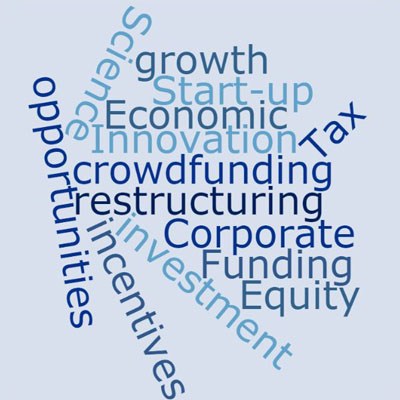News

Australia: New incentives reward investment in innovation
January 2016
Australian Prime Minister Malcolm Turnbull's recent announcement of a major policy initiative to support innovation in science and business promises new funding opportunities, tax incentives, and policy changes for the country's entrepreneurs.
Under the oversight of the new "Innovation and Science Australia" agency, the government's intention is to stimulate economic growth (specifically to replace some of the economic activity generated by mining over the past decade) by supporting innovation, improving access to Commonwealth Scientific and Industrial Research Organisation (CSIRO) and other funding, improving support for the higher education sector, and supporting businesses through tax incentives on research and development (R&D).
While full details have yet to be released, tax incentives for business are likely to involve exemptions from CGT, a 20% rebate on innovation expenditure, and a less stringent treatment of tax losses.
In a series of planned incentives due to commence in 2017, the current refundable R&D tax offset will continue, with a new incentive allowing early-stage investors a 20% non-refundable tax offset on any direct investment in a qualifying start-up. While only likely to be of benefit to taxpayers with taxable income from other sources, this could, potentially, provide a 20% cash return. The government have not yet issued any details on what new companies will be eligible for rebateable start-up investment, however, and it is possible that projects may need to be approved by the advisory body. Capital gains earned on the sale of equity or business assets from these eligible start-up enterprises will be exempt from tax.
Additional concessions on the treatment of prior-year tax losses are proposed that will allow losses to be deducted where an entity has a change in ownership and the business conducted is "predominantly similar" to that undertaken when the tax loss was generated. This is more generous than the current "same business test" (which requires certain key elements to continue), and is intended to encourage entrepreneurs to seek new investors and equity to allow the continuation of the business, without risk of triggering tax penalties. Investments in an Early Stage Venture Capital Limited Partnership will be eligible for a 10% non- refundable tax offset. Depreciation laws will be amended to allow intangible assets such as patents to be depreciable over their effective life.
Under the same initiative, new regulation will see the default bankruptcy period reduced from three years to one. Recognising that start-up entrepreneurs often fail before ultimately finding success, this initiative is intended to allow business owners to re-commence trading earlier. Directors of companies in difficulty will also be offered protection from personal insolvent trading liability where a "professional restructuring adviser" is appointed.
The initiative also includes various concessions on raising finance. In a relaxation of current regulation requiring a prospectus to be issued by any company seeking any form of public funding, companies will now be able to engage in crowd-sourced fundraising of up to AUS$5 million per year. The tax treatment of employee share schemes will also be adjusted to make these more user friendly, with additional concessions for shares in start-up companies.
Bruce Saward, managing partner, Russell Bedford member firm Saward Dawson, Melbourne, Australia, commented: "While details have yet to be confirmed, these initiatives would seem to be a genuine attempt to incentivise investment in higher-risk start-ups, to facilitate faster business turnaround, and to create an environment conducive to big-ticket equity crowdfunding."



